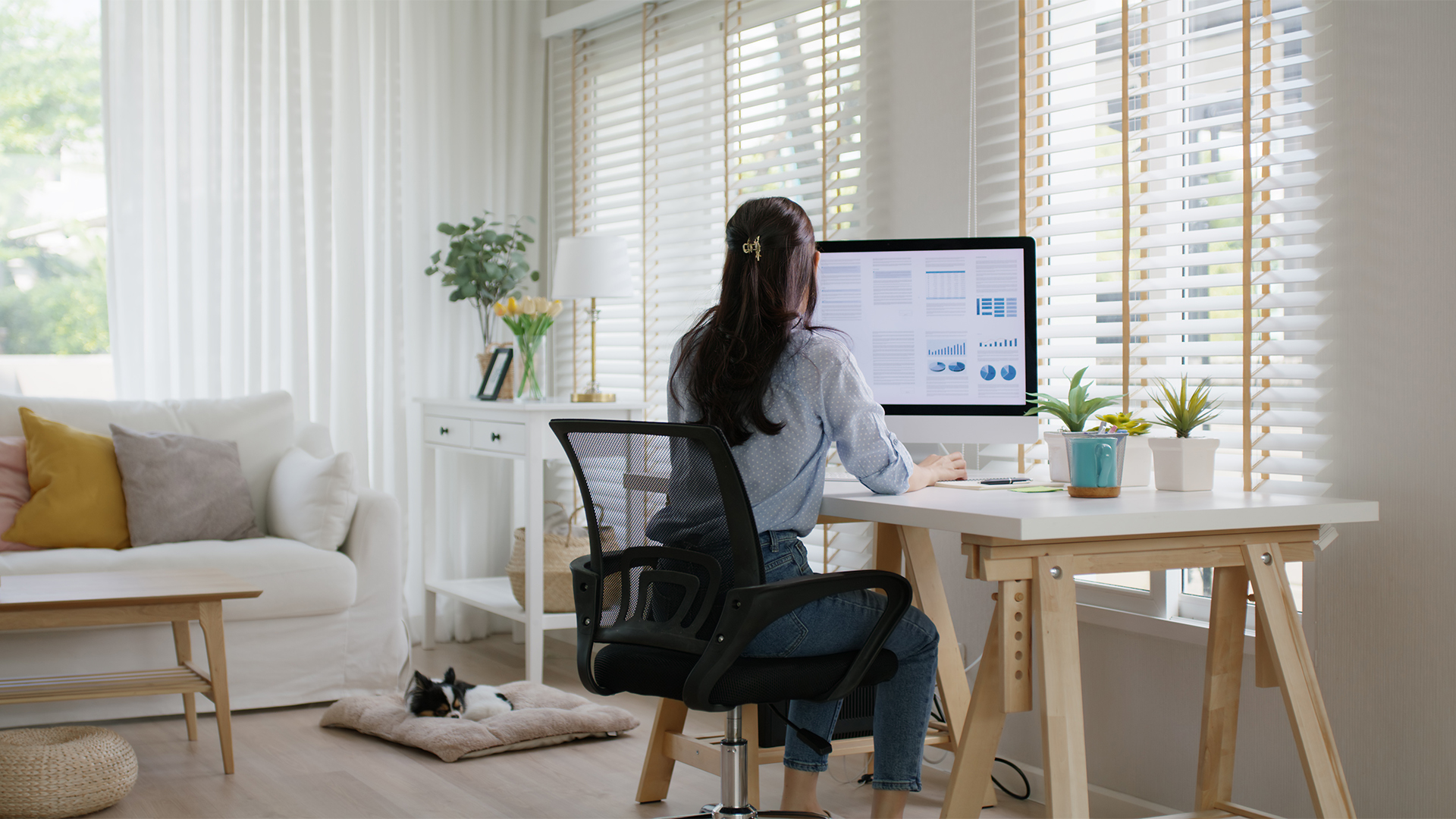Cracks begin to show in hybrid working as more staff report ‘video call fatigue’ – but nearly a third would still quit if faced with an RTO mandate
Younger workers would rather quit than go back to the office full-time


A third of younger workers say they'd rather quit their jobs than do more days in the office, according to a survey.
Education platform Kahoot surveyed 2,000 UK professionals revealing why so many workers are keen to stay at home — and why some can't wait to get back to the office.
The study revealed that 29% of 18-24 year olds would quit their jobs if faced with even a partial return to office (RTO) mandate, with 24% of 25-34 year olds saying the same.
Despite the love of working from home, there are complaints. Nearly half (46%) of respondents to the Kahoot survey said they believe they are more productive working in the office versus 26% who feel they get more done at home.
Similarly, a third think their coworkers are less efficient at home than in the office.
"The study shows that a third of UK hybrid workers would quit if WFH days were reduced, underscoring the lasting impact of the remote work shift," said Sean D'Arcy, chief solutions officer at Kahoot.
That fits with previous research that found business leaders could risk sparking a ‘brain drain’ when implementing strict RTO mandates. In a study by the University of Pittsburgh, researchers found RTO mandates can lead to a surge in staff departures.
Get the ITPro daily newsletter
Sign up today and you will receive a free copy of our Future Focus 2025 report - the leading guidance on AI, cybersecurity and other IT challenges as per 700+ senior executives
Notably, the study found that the company’s best-performing staff are among the first to jump ship, with women and more senior skilled employees in particular opting for a career move.
The novelty of hybrid work may be over
D'Arcy said that while working from home remains a favored practice for many workers, the survey showed the shine has worn off hybrid working, revealing some downsides.
"Yet, the novelty of remote work has faded, with many employees reporting video call fatigue, productivity drops, and privacy concerns," D'Arcy said.
Indeed, many of the complaints seem to stem from video calls, with 55% of respondents said they suffer video-call fatigue. Respondents also said they feel less tolerant of poor video-call etiquette like meetings being crashed by children, eating and drinking on camera, or faking a technical issue to ditch out of a call.
Indeed, 87% of those surveyed said at least some of their video meetings aren't needed, with a quarter reporting that at least half could have been an email. A third of respondents also feel video calls are less useful than in-person meetings.
RELATED WHITEPAPER

The research also raised concerns about security risks, with a third of UK workers who were surveyed saying they have overheard work-related calls in public places, with confidential information leaking on screen or via calls.
That doesn't mean the hybrid work experiment should come to an end, D’Arcy said, but that meetings — whether Zoom or in person — need to improve.
"Rather than forcing employees back to the office, employers should focus on improving hybrid work by optimizing meetings, keeping them shorter, more purposeful, and engaging," he added.
Freelance journalist Nicole Kobie first started writing for ITPro in 2007, with bylines in New Scientist, Wired, PC Pro and many more.
Nicole the author of a book about the history of technology, The Long History of the Future.
-
 Geekom Mini IT13 Review
Geekom Mini IT13 ReviewReviews It may only be a mild update for the Mini IT13, but a more potent CPU has made a good mini PC just that little bit better
By Alun Taylor
-
 Why AI researchers are turning to nature for inspiration
Why AI researchers are turning to nature for inspirationIn-depth From ant colonies to neural networks, researchers are looking to nature to build more efficient, adaptable, and resilient systems
By David Howell
-
 Young tech professionals are shunning a full-time return to the office – unless it pays more
Young tech professionals are shunning a full-time return to the office – unless it pays moreNews Young tech professionals who entered the workforce post-pandemic expect on-site work to be paid more than remote options.
By Emma Woollacott
-
 ‘Employers must look at the bigger picture’: Brits aren’t keen on going back to the office, and enterprises pushing for it risk a talent exodus – 48% of UK professionals would quit if faced with a full RTO mandate as hybrid work remains popular
‘Employers must look at the bigger picture’: Brits aren’t keen on going back to the office, and enterprises pushing for it risk a talent exodus – 48% of UK professionals would quit if faced with a full RTO mandate as hybrid work remains popularNews Nearly half of professionals would consider quitting rather than returning to the office full time
By Nicole Kobie
-
 IT professionals aren’t budging on flexible work demands – and more than half say they’ll quit if employers don’t meet expectations
IT professionals aren’t budging on flexible work demands – and more than half say they’ll quit if employers don’t meet expectationsNews Analysis from Randstad shows 40% of UK-based IT pros have quit over a lack of flexible work options, while 31% of workers globally have done the same.
By Ross Kelly
-
 The creator effect: Shaping the future of travel
The creator effect: Shaping the future of travelWhitepaper The way forward for the travel sector
By ITPro
-
 Westcon-Comstor promotes Rene Klein to lead unified European business
Westcon-Comstor promotes Rene Klein to lead unified European businessNews Westcon-Comstor has announced the appointment of Rene Klein as executive vice president for EMEA.
By Daniel Todd
-
 'The tide seems to be turning towards office attendance': 64% of hybrid business leaders want staff back in the office – but many worry that enforcing RTO mandates will drive employees away
'The tide seems to be turning towards office attendance': 64% of hybrid business leaders want staff back in the office – but many worry that enforcing RTO mandates will drive employees awayAnalysis Many UK business leaders want their staff back in the office more frequently, but they’re scared to implement return to office (RTO) mandates in fear of worker revolts.
By George Fitzmaurice
-
 Tech firms eye temps to plug talent gaps
Tech firms eye temps to plug talent gapsNews The tech industry could be set for a spike in temporary hiring, according to a new study from recruitment firm Robert Walters.
By George Fitzmaurice
-
 Enterprises are doubling down on IT optimization strategies – and it’s delivering huge financial returns
Enterprises are doubling down on IT optimization strategies – and it’s delivering huge financial returnsNews Organizations that have cracked IT cost optimization and innovation reap the rewards both financially and in terms of time to market.
By Emma Woollacott